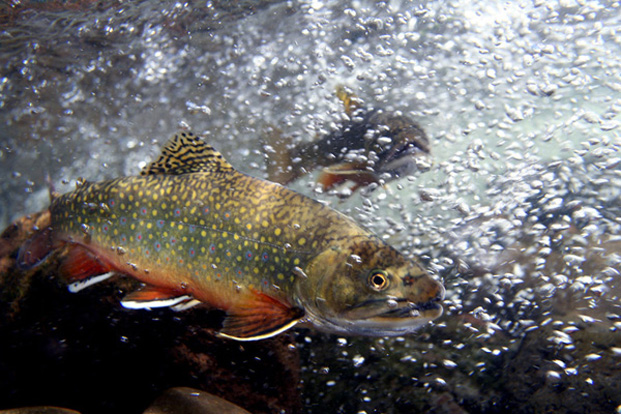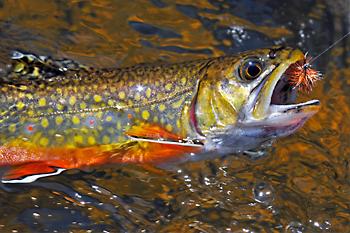By Tee Clarkson / Special correspondent to the Richmond Times
[dropcap]E[/dropcap]arly in November, the National Wildlife Federation released a new report titled Game Changers: Climate Impacts to America’s Hunting, Fishing and Wildlife Heritage.
The report doesn’t necessarily bring anything new to the table when it comes to the impacts of climate change on game species such as mammals, birds and fish, but it synthesizes some of the work that has been done by different organizations around the globe, providing a more universal picture.
Climate change is a tricky enough subject among hunters and anglers, but when you factor in the political nature of the issue, it becomes downright difficult.
When it comes to Virginia, there’s little doubt that climate change is affecting some of our iconic species: brook trout, oysters, blue crabs and more. The question remains: What can we do, if anything?
The brook trout is the state fish of Virginia, inhabiting about 2,000 miles of streams in the Commonwealth, primarily across the western and southwestern parts of the state.
Brook trout are sensitive to climate change according to Tom Benzing, conservation chair for Virginia Trout Unlimited. Warming streams reduce habitat, and when combined with the negative effects of energy development and the introduction of non-native species, the future for Virginia brook trout is threatened. According to Benzing, some models have brook trout extinct in the Commonwealth by mid-century.
“The Chesapeake Bay Agreement calls for an 8 percent increase in brook trout habitat by 2025,” Benzing said.
Benzing said that Virginia is on the front lines of dealing with climate change and its effect on trout and pointed toward monitoring energy development and its impact on brook trout habitat as being important in the future.
According to the report, climate change is having a profound effect on the Chesapeake Bay as well, specifically on oysters and blue crabs.
Chris Moore, a Hampton Roads senior scientist for the Chesapeake Bay Foundation, said the temperature of the Bay has risen one degree in the past 100 years. One degree doesn’t seem like a lot, but consider the difference in the way one feels with a temperature of 98.6 compared to 99.6.
Recently, there has been much made of the rebound of oysters throughout the Bay, but “climate change reduces the chances of this being a success story,” said Moore.
Warmer waters create longer periods and greater areas with low dissolved oxygen. Many species, such as blue crabs and oysters, can’t survive in these areas. Crabs are able to move away from them, but often their food sources cannot. Oysters, on the other hand, can’t move at all. Warmer water and lower oxygen means changes in food sources for oysters as well as thinner shells and is extremely detrimental during the spawning period.
A lower amount of dissolved oxygen in the Bay because of warmer water temperatures not only affects oysters and blue crabs, but sportfish such as striped bass, redfish, bluefish and summer flounder. The lack of dissolved oxygen takes away some of the fishes’ deeper refuges, according to Moore, creating more stress and making them more susceptible to disease.
Climate change has been an ongoing occurrence throughout history. What effect man is having on the current changes is the subject of great debate.
Regardless of where one stands on the issue, there’s little doubt that climate and habitat change are the biggest threats to wildlife, not only in America, but across the globe.
There’s also no doubt that sportsmen and women play a significant and vital role in conservation.
“Sportsmen are on the front line,” said Samantha Lockhart, national outreach coordinator for the National Wildlife Foundation.
[information]
For more information on the National Wildlife Federation and to view the full report, visit . . .
To view Trout Unlimited’s “State of the Trout” Report . . .
[/information]



